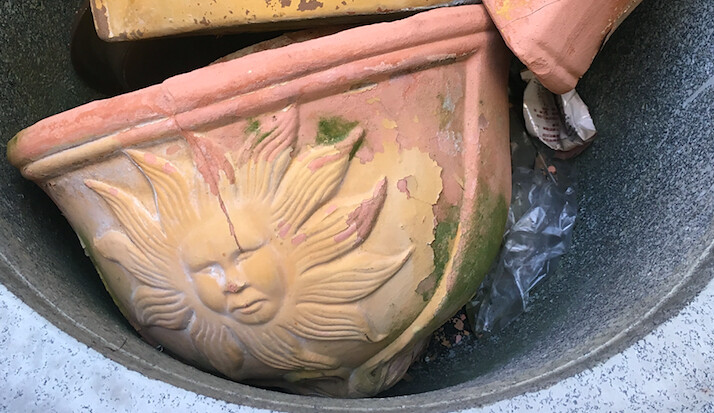
The National Interest has some of the best journalism on Taiwan out there (among media sources not dedicated to Taiwan, that is). So as expected, this piece on the questionable capabilities of the Taiwanese military to fend off a Chinese invasion was quite strong - mostly.
I absolutely believe Minnick's concerns are founded, even though for my own sanity I must also believe President Tsai when she says that Taiwan can fend off the first wave of attack, a belief which is widely held. I also have to believe that aid would come after this point (though of course I can't say this with confidence) - again for my own sanity. Not just for the country that is my home, but because my own life as I know it would be over.
But this point struck me, and I can't let it go without saying something:
Public lethargy and a lack of confidence in the military has drained the armed forces of manpower and morale. And it is this lethargy, along with the unwillingness of Taiwan’s political elites to communicate this imminent threat to the public, that must be addressed.
Taiwan’s military wants to procure big-ticket items from the United States, but at the same time it has been forced to reduce conscription and training due to funding issues and an apathetic civilian population....
Part of the problem is conscription and a decline in patriotism.
This isn't the first time I've heard that Taiwan is facing a military recruitment problem because of a lack of "patriotism." Concerns that neither training nor pay are particularly good, pensions have been cut, that it's widely seen as a difficult working environment and that military service obligations are to be borne with annoyance if they can't be outright avoided are all valid.
But kvetching about a lack of patriotism?
Dudes, you did this to yourselves.
I don't mean the Taiwanese in general. I don't even necessarily mean the military specifically. I mean all you people who whine about how Taiwan shouldn't change its name unilaterally, and be very cautious about altering or scrapping juridicial documents like the constitution and symbols like its flag and national anthem (both of which are very China/ROC/KMT-oriented). And all of you who say these symbols are "small differences" and to harp on them is "narcissism". You may be Western or Taiwanese, based in Taiwan or abroad, but all of you and the government you have convinced to retain the name and general governmental structure of the "Republic of China" can look squarely at your own damn selves if you want to know why Taiwanese don't feel particularly patriotic.
Those names and symbols do actually matter, and it shows in how little they inspire the Taiwanese populace.
Why should the average Taiwanese person feel great love for the Republic of China? Especially if that person lived through the worst years of the horrors that uninvited colonial government inflicted on Taiwan, how could there be any great welling of pride when seeing that white sun on a blue sky, that party symbol of the KMT on the national flag? How could the eyes of most Taiwanese well up when they hear their national anthem which references their "party" (the KMT) and is therefore an explicit callback to the era of dictatorship and mass murder? And what kind of dummy do you have to be to expect otherwise?
At best, you'll get deep ambivalence - after all, if the ROC flag is the one people know abroad and it differentiates them from the PRC, that's something - and you should be grateful for even that. It's hardly deserved. Feeling some form of conflicted happiness to see that flag or the name "Republic of China" used by international organizations is a kindness - a generous offering. Calling it paltry or insufficient is an insult.
Telling Taiwanese that they ought to feel patriotic fervor for the government that once oppressed them, and its symbols, because they can't realistically get rid of them right now? The same symbols that were (and are) used to try to erase their own Taiwanese identity? When members of the party that introduced those symbols (and that oppression) call disagreement "separatism", threaten people who disagree with death, and seem to care more about China than Taiwan? That's messed up.
Even for those who don't hate the ROC and its symbols, it's a confusing message. We have to fight for Taiwan - or, err, the ROC - um, which claims to be China, but we have to fight against China as the ROC for the future of Taiwan...uh, here, look at this flag that has one political party's symbol on it, which is from China and seeks to supplant your sense of Taiwaneseness, which we're preparing for war against...as China...for your country, Taiwan.
Yeah, okay. That'll win those youth over!
The ROC is a system on life support. It's around because of the threat of war if Taiwan were to dismantle it, and perhaps a small (but rich and influential) class of people who still think it is a government worth keeping around. It's around because the allies Taiwan hopes for in the event of war tell Taiwan it has to be this way so as not to "anger China".
That's a recipe for declining patriotism; who, beyond that core of diehard ROC fans, could summon up much more feeling for it than one feels for their annual gynecological exam? (Or for the guys, whatever it is you get examined every year that is important to do but uncomfortable.) Necessary for continued health, but not exactly inspirational.
Like an ice-cold speculum, the white sun on a blue field and everything it stands for just does not engender the sort of emotional connection to a place, system governance and set of social values that underlie an urge to join the military.
So for the military to be pushing that same old "ROC! ROC! Let's fight for the ROC!" patriotic blargle...yeah, it's not going to work. They could try harder, they could make it swisher, they could give their recruitment drives higher production values. They could just plain offer better pay, benefits and working conditions. But if the population is not too keen on the ROC, all but the latter is just not going to work.
Or, worse than an ice-cold speculum, it is about as inspirational as this, um, "song" trying appeal to supporters of Wu Dun-yih.
Please don't come in at this point blaming the Taiwan independence activists for this state of affairs. Yes, it's true that in social conditions where most people think of themselves as "Taiwanese" and the country they live in as "Taiwan", to say that "Taiwan can never be 'free' with the ROC around" makes it more difficult for people who love Taiwan to feel great patriotism when Taiwan is called the ROC.
But...
a.) They're right, even if that truth is neither convenient nor realistic (and deeply confusing to people who don't know Taiwan well, so please stop saying it to them - just stick to the digestible "Taiwan is already independent and they just want to stay that way" and let's not air our dirty laundry in front of the white people, 'kay?)
b.) The average Taiwanese person thinks the hardcore independence activists are a bit nutty, even if they fundamentally agree with the message. From my experience, your average person who doesn't follow politics too deeply does want Taiwan to maintain its autonomy but they think the folks to take to the streets all the time are...going overboard. So their message probably isn't the reason for the greater societal apathy.
c.) This outcome was inevitable. Anyone with eyes and ears can see that the ROC is waning, it's propped-up, it's nothing to feel great emotion for (and was frankly never that great, even when it was the government of China). It's just natural not to feel particularly moved by symbols that are pushed on you and disconnected with how you actually feel about your country and society.
If the Taiwanese military wants to build a sense of patriotism that will lead to wider recruitment, Minnick is right that it first needs to communicate the true depth and nature of the threat to the public. Folks calling for better careers in the military are likewise correct.
But they also have to quit pretending that the old ROC rah-rah can work. It can't. It's dead.
I know most of the military leans blue and that the ROC's name can't be safely officially changed right now, but the youth are Taiwanese, not Republic of Chinese. Naturally independent. They'd probably fight for that, but you have to couch the message in terms of the country and society they know, not what the government is forced to say at the higher levels.
That is, appeal to the desire to fight for Taiwan, and stop leaning on symbols that, if they don't inspire bitterness and emnity over the ROC's dictatorial and murderous past, are simply dead.

